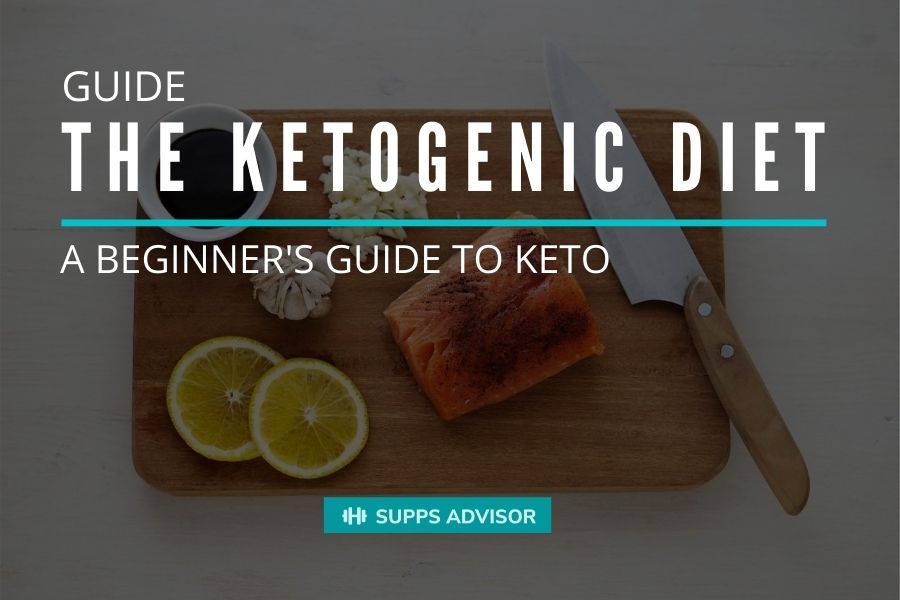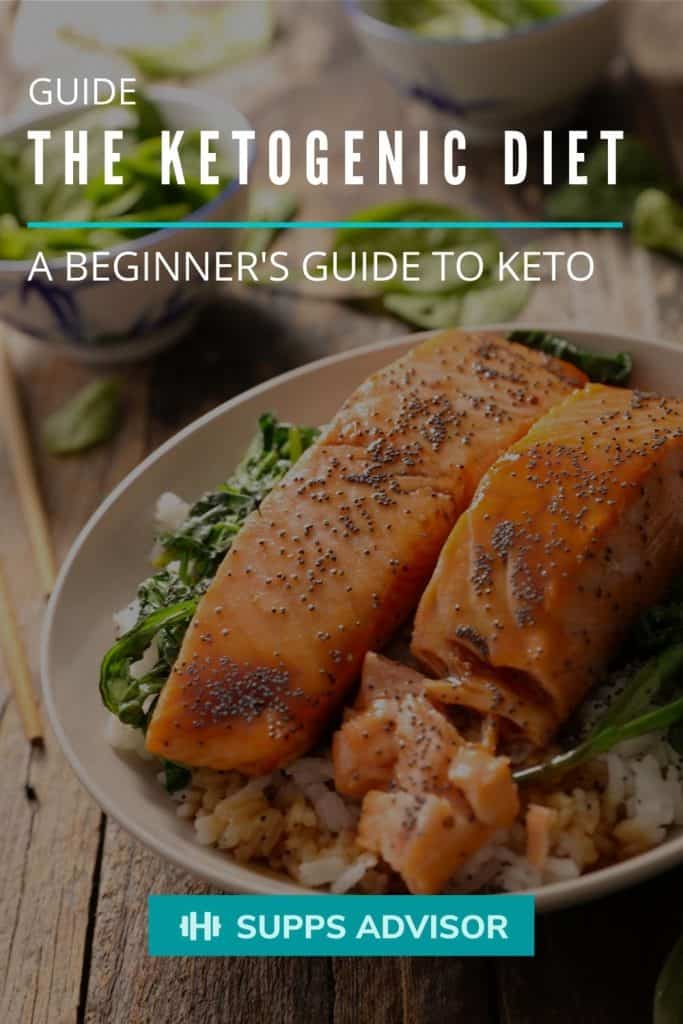One of my close friends asked me, “What’s the biggest market you see within the…
TOC
The Ketogenic Diet: A Beginner’s Guide to Keto

09/01/2020 · 4 min reading
Have you heard of the ketogenic diet? It’s often referred to simply as “keto” and it involves consuming high amounts of fat while lowering your carbohydrate intake.
The reason why so many people gravitate towards the keto diet is because it comes with a lot of health benefits. Studies show that it can assist with leaky gut issues, heart disease, and several types of cancer.
Not only that, but weight loss 1 is a real possibility and a common side effect of adopting a keto diet.
Now, any diet that promises weight loss as well as health benefits ought to be considered. If you too are curious about the keto diet, read on to discover what we found after some research and experimentation.
Who Is This Diet For?
Stepping into a new diet plan is no easy task because you never know if it’s going to work for you or not. Ideally people with diabetes, overweight people, and those looking to improve their overall health should consult a medical professional before trying any diet to ensure that it’s suitable for their lifestyle and dietary requirements.
For everyone else, the ketogenic diet can produce some pretty fantastic results.

But, how does the keto diet work?
The keto diet mimics other low carb diets to a certain extent, being loosely based on the premise of limiting carbohydrate intake while increasing the consumption of healthy fats.
This particular caloric balance works because lowering the amount of carbs you take, causes your body to respond by altering its natural state.
This process leads to a state of ‘ketosis’ 2 where your body constantly burns fat in order to provide energy. Fats then become ketones in the liver which results in increased energy for the brain.
What You Can And Can’t Eat
Among the foods that should be eliminated from your diet, you have sugary foods, grains, starches, and beans. You’ll also need to limit your fruit intake. Smaller portions of fruit (such as berries) can be eaten but not large portions of it.
Alcohol must be fully eliminated as it can ruin your diet entirely. Certain sauces that contain sugar and unhealthy fats need to also be excluded from your diet. Although fats are part of the diet, unhealthy fats like mayonnaise and oils should not feature into your daily meal plan.
Eggs are most welcome in the keto world, as is fatty fish and meats, which should be eaten regularly. Dairy products like butter, cream, and cheese are a must. Even condiments like salt, pepper, herbs are allowed. A variety of nuts and seeds are also recommended.
The good thing is that this particular diet includes snack time. Snacks like dark chocolate, strawberry and cream, avocado, almond milk milkshakes, full-fat yogurt, and olives are recommended whenever you feel hungry during the day.
This is basically all the food that you’d usually eat. Remember to keep your protein intake at a moderate level so as not to spike up your insulin levels. Plus a few extra carbs a day never hurt anyone.

Benefits Of The Keto Diet
- The keto diet can be beneficial at preventing heart disease. Due to the lowered cholesterol levels, the chances of getting heart disease are incredibly reduced 3.
- The keto diet has been tested on cancer patients 4 to see if it works at reducing tumour growth, with mostly positive results.
- Acne is also significantly reduced due to the significant reduction of sugar in the diet.
- Epileptic children also suffer less from epileptic fits when introduced to a keto diet 5.
- The keto diet is also known to assist with gut issues such as leaky gut, by aiding digestion. If you struggle with leaky gut, check out this guide on how to combat the condition using more natural healing methods.
Side-Effects Of The Keto Diet
When you change your diet in any way, your body reacts by trying to adapt to your new lifestyle. People on the keto diet may suffer from what is known as the ‘keto flu’ 6 initially.
This translates to a reduction in body energy, increased hunger, and disturbed sleep. Nausea and diarrhea may also be experienced initially.
To remedy this, you can take some mineral supplements to ease the side effects. You can also up your caffeine game so as to improve your energy levels.
Remember your urine may also have a fruity odor, and your breath may have a distinct smell, but you can always chew gum to remedy the problem.
Trying out any diet requires a change of heart and of lifestyle, and if the change works for you, stick with it. The health benefits are well worth it.
References
- Jeff S Volek, Eric C Westman (2002) Very-low-carbohydrate weight-loss diets revisited. Ncbi.nlm.nih.gov.
- Minesh Khatri, MD (2014) Very-low-carbohydrate weight-loss diets revisited. WebMD.
- Richard J Wood, Jeff S Volek, Yanzhu Liu, Neil S Shachter, John H Contois, Maria Luz Fernandez (2006) Carbohydrate restriction alters lipoprotein metabolism by modifying VLDL, LDL, and HDL subfraction distribution and size in overweight men. Ncbi.nlm.nih.gov.
- Jocelyn Tan-Shalaby, MD (2017) Ketogenic Diets and Cancer: Emerging Evidence. Ncbi.nlm.nih.gov.
- Elizabeth G Neal PhD (2008) The ketogenic diet for the treatment of childhood epilepsy: a randomised controlled trial. sciencedirect.com.
- Marcelo Campos, MD (2018) What is keto flu?. Harvard Health Blog.

Anelisa Nokoyo is a professional copywriter and digital entrepreneur with an interest in biohacking, nutrition, fitness and alternative lifestyles. In her spare time, she enjoys reading, watching tiny house videos, spending time in nature and trying out creative, out-of-the-box workout ideas.
View all posts by Anelisa NokoyoRelated Posts
-
10 Best Fat Burners for Women. Detailed Buyer's Guide and Reviews!
-
Lose Weight With S.M.A.R.T. Goals!
I still vividly remember the day that I found out my father had a heart…

